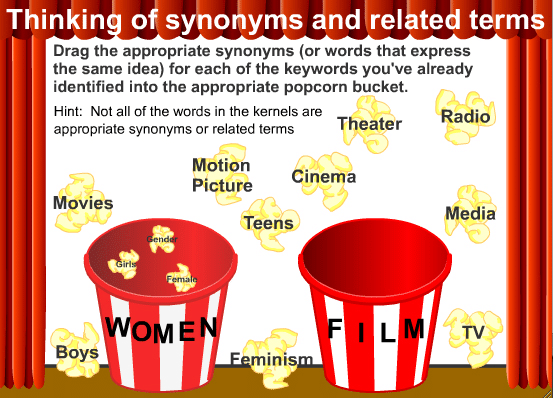Research Synonym: Exploring Alternatives and Their Meaning in Depth

Research Synonym When we talk about research, most people immediately think of academic papers, scientific experiments, or hours spent digging through books and journals. But the word “research” itself is far more versatile than many realize. It’s not confined to just laboratories or libraries—it can also represent exploration, investigation, or discovery in almost any context. And here’s where synonyms come into play.
Using synonyms for “research” can help diversify your writing, making it sound more polished and less repetitive. For example, instead of saying “I conducted research,” you might say “I carried out an investigation” or “I explored the subject in detail.” Each synonym brings its own nuance, adding variety and precision to communication. This is particularly helpful for students, professionals, or writers who need to express complex ideas without falling into monotony.
The beauty of synonyms lies in their flexibility. While some may emphasize a structured, scientific study, others highlight curiosity-driven exploration. This makes the concept of research synonyms not only relevant in academic fields but also valuable in everyday conversation, journalism, business, and even creative writing. Understanding how to use these alternatives can enhance your vocabulary and sharpen your communication skills.
Common Synonyms for Research and Their Nuances
One of the most common synonyms for research is “study.” Research Synonym This word tends to carry a strong academic and analytical undertone. For instance, when we say, “a study was conducted on climate change,” it implies a systematic, evidence-based process. The word study is straightforward, yet it holds authority, which is why it appears frequently in scholarly articles and reports.
Another synonym worth mentioning is “investigation.” Unlike “study,” which feels more academic, “investigation” has a broader scope. It can be applied to scientific analysis but also to crime-solving, journalism, or business evaluations. If someone says, “a team launched an investigation into market trends,” it shows a deeper, perhaps more practical, attempt to uncover truths or hidden details.
Then there’s “exploration.” This word paints a more adventurous picture. Research Synonym Exploration can refer to literal journeys, such as venturing into unknown lands, or metaphorical ones, like exploring ideas and concepts. Saying “exploration of social behaviors” adds a more dynamic and open-ended feel than the rigid structure implied by “study.” Each synonym reflects a slightly different perspective, making it essential to choose the right one for the context.
Academic Contexts: Choosing the Right Synonym

Research Synonym In academic writing, word choice is incredibly important. Professors, reviewers, and readers expect precision. While synonyms can make your work more engaging, they also need to align with the tone and intent of your writing. For instance, if you are drafting a research paper in psychology, saying “this study investigates the effects of stress” works well. However, swapping “study” with “exploration” might make the sentence feel less formal and more casual.
Similarly, “analysis” is another synonym frequently used in academia. Unlike research, which suggests the entire process of gathering information, “analysis” emphasizes breaking down data or theories to understand them better. For example, “an analysis of the survey responses revealed key patterns.” This term doesn’t cover the whole research journey but instead highlights a specific step in it.
Moreover, “inquiry” also plays an essential role in educational contexts. Inquiry often refers to a questioning process, designed to spark curiosity and encourage deeper understanding. For example, inquiry-based learning focuses on asking questions rather than simply providing answers. Using “inquiry” as a synonym for research is particularly effective when discussing teaching methods or philosophical approaches to knowledge.
Business and Professional Usage of Research Synonyms
In the business world, the word research is often tied to market analysis, consumer insights, and trend studies. But constantly repeating “market research” in a report or presentation can quickly feel dull. That’s where synonyms come in. Phrases like “market investigation,” “consumer study,” or “industry analysis” help vary the tone while maintaining clarity.
For professionals in marketing and sales, using synonyms also adds persuasive power. For instance, saying “our team carried out a detailed investigation into customer behavior” sounds more compelling than repeating “research” multiple times. Research Synonym It not only avoids redundancy but also highlights the thoroughness and credibility of the work.
Beyond marketing, in fields like management consulting or entrepreneurship, terms like “assessment,” “evaluation,” and “examination” are often used as alternatives to research. These words emphasize judgment and decision-making, which align with business objectives. Using them in reports or proposals helps convey authority and professionalism while still staying true to the essence of research.
Everyday Language: Casual Uses of Research Synonyms
Outside of formal or professional settings, people still “research” all the time—though they might not call it that. For instance, if someone is looking up the best smartphones of the year, they might say, “I’m investigating options,” or “I’ve been exploring different brands.” These are casual synonyms that keep everyday conversations natural and relatable.
In fact, the term “digging into” has become a popular informal synonym for research. Phrases like “I’ve been digging into new recipes” or “I dug into the history of that band” add personality and make the act of research feel approachable. Such expressions highlight curiosity rather than structured methodology, making them ideal for storytelling or casual writing.
Another common phrase is “looking into.” If you tell a friend, “I’m looking into new job opportunities,” you are essentially conducting research, but in a more laid-back tone. Research Synonym This flexibility shows how research synonyms can fit smoothly into everyday communication without sounding overly academic or formal.
Why Synonyms Matter in Communication
The importance of synonyms goes beyond just avoiding repetition. They allow speakers and writers to fine-tune their message for specific audiences. For example, a student writing a dissertation may lean heavily on words like “study” or “analysis,” while a blogger might prefer “exploration” or “digging into” to create a conversational tone.
Furthermore, synonyms can add depth to expression. While “research” might suggest a process, “investigation” emphasizes discovery, and “evaluation” highlights judgment. This means choosing the right synonym can subtly shift the focus of your message, making it more impactful.
From a psychological standpoint, variety in word choice also keeps readers engaged. Imagine reading an article where the word “research” appears twenty times in one page—it would feel redundant and dull. But with synonyms sprinkled throughout, the text becomes lively, interesting, and easier to follow. Research Synonym This is why good communicators—whether teachers, writers, or business leaders—use synonyms strategically.
Expanding Your Vocabulary: How to Master Synonyms
Building a strong vocabulary doesn’t happen overnight, but making a conscious effort to learn and use synonyms can go a long way. Start by identifying words you use frequently—in this case, “research.” Research Synonym Then, look up synonyms and practice incorporating them into sentences. Instead of saying, “I need to do some research on fitness,” you could try, “I need to investigate fitness programs” or “I want to explore different workout routines.”
Another effective method is reading diverse materials. Academic journals, news articles, novels, and blogs each have their own styles of presenting ideas. Research Synonym By observing how authors vary their word choices, you naturally pick up synonyms that fit different contexts. For example, you’ll see “inquiry” more in philosophy texts, while “investigation” often appears in news reports.
Lastly, writing practice is essential. Try rewriting a paragraph you’ve already written, replacing overused words with synonyms. This exercise not only strengthens your vocabulary but also trains your mind to think more creatively. Over time, using synonyms like “examination,” “study,” “inquiry,” or “analysis” instead of just “research” will feel effortless.
Conclusion: The Power of Research Synonyms
At its core, research is about seeking knowledge. Whether you call it study, investigation, exploration, inquiry, or analysis, the essence remains the same—an effort to learn, understand, or discover something new. However, the way we phrase it can change how others perceive our message. Research Synonym Using the right synonym in the right context allows us to communicate with precision, professionalism, or casual flair, depending on the situation.
Research synonyms are not just about vocabulary variety; they are tools that shape tone, clarity, and engagement. For academics, they provide precision. For professionals, they add credibility. And for everyday conversations, they make communication more natural and relatable. Mastering these alternatives can elevate anyone’s writing and speaking, making ideas flow smoothly while keeping the audience interested.
In short, the word “research” might be the starting point, but synonyms like study, investigation, exploration, inquiry, and analysis open up a world of expression. Research Synonym The more you embrace them, the richer and more dynamic your communication becomes.



